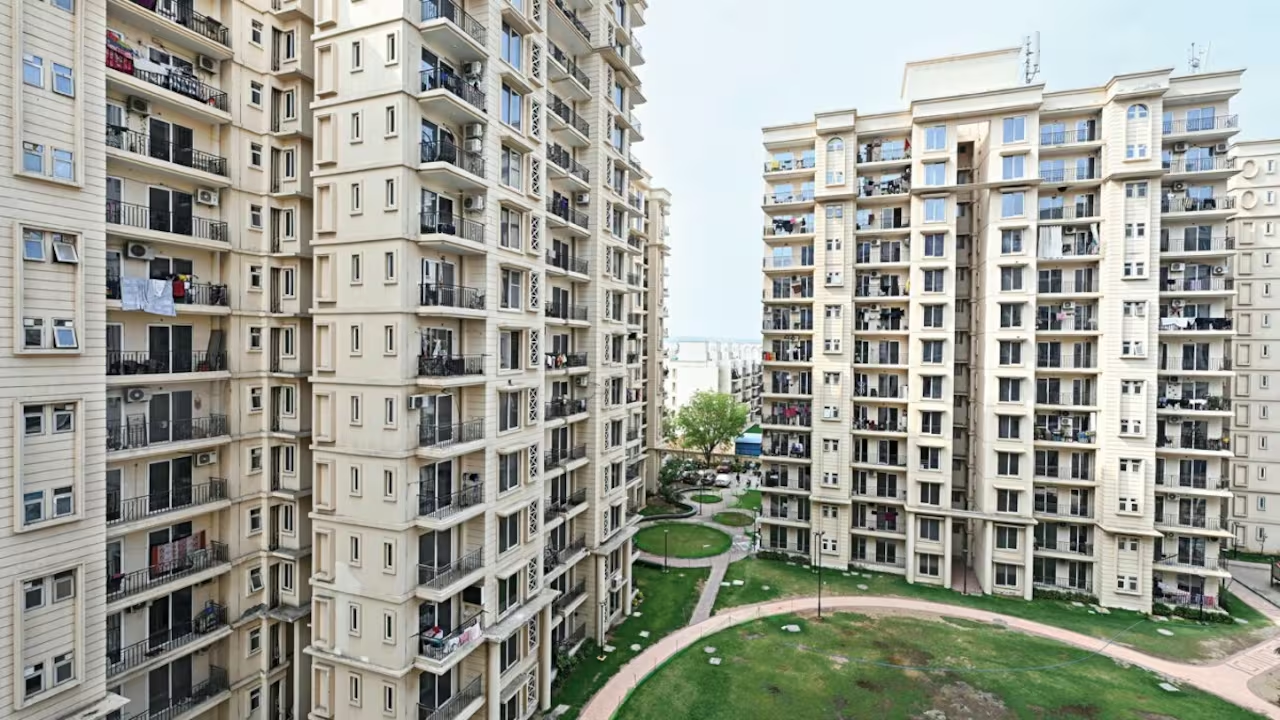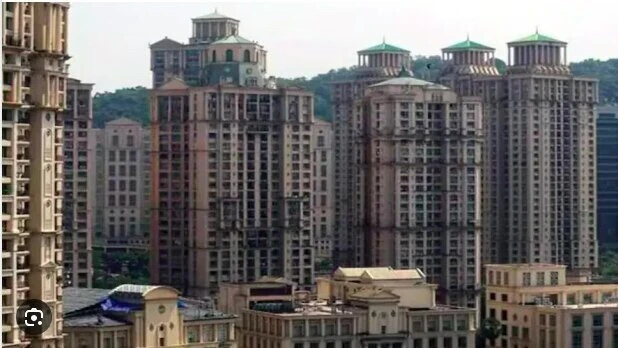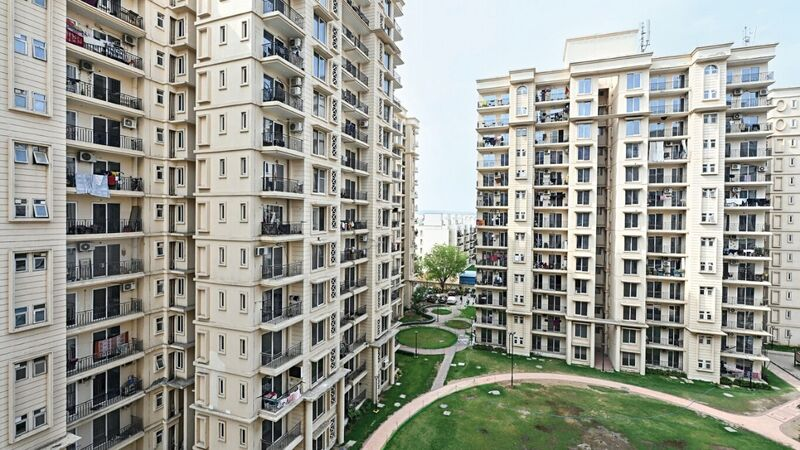
Flat value decline is no longer just speculation—it’s a visible reality in India’s urban real estate market. Many homeowners who purchased premium apartments for ₹1 crore in the last five years are now shocked to discover their property value has dropped to around ₹90 lakh or even less. And according to well-known financial influencers, or “finfluencers,” this downward trend may continue.
In cities like Mumbai, Delhi-NCR, Pune, Hyderabad, and Bengaluru—once the hotbeds of property appreciation—flat owners are witnessing stagnant or declining resale prices. Many factors, including market saturation, reduced demand, oversupply, and global economic slowdown, have contributed to this significant flat value decline.

The Indian property market has seen years of price stability, with only modest growth in the resale segment. While new projects are often sold at a premium due to marketing and developer hype, resale flats—especially those over 5 years old—are struggling to hold their perceived value.
According to industry experts, the flat value decline is being driven by:
As a result, buyers are negotiating hard, and sellers are often forced to slash prices to close deals.
Several Indian finfluencers on YouTube and Instagram are now openly talking about the flat value decline and why buyers should think twice before locking their money in high-end real estate.
One popular finfluencer recently posted:
“You thought your ₹1 crore flat was an investment? It’s worth only ₹90 lakh now, and in another year, maybe even less.”
They advise young investors and first-time buyers to prioritize liquidity and invest in assets with better returns than physical property. Many also point out that while property gives emotional satisfaction, it often fails as a high-performing financial asset.
Take the example of Mr. Ramesh Gupta, a 38-year-old IT professional in Noida. In 2018, he purchased a 3BHK apartment in a premium society for ₹1.05 crore. Fast-forward to 2025—despite regular upkeep and maintenance—he is struggling to sell it even at ₹90 lakh.
“People visit the flat, appreciate the location and amenities, and then quote ₹88–₹90 lakh. It’s disheartening,” Gupta said.
In contrast, his colleague who invested the same amount in mutual funds five years ago now sits on a portfolio worth ₹1.45 crore.
The new home buyer today is spoiled with choices. Developers are offering:
This makes resale flats—even in well-maintained societies—less attractive in comparison. Thus, owners face double pressure: reduced resale value and lower bargaining power.
While the market looks shaky for sellers, buyers might be tempted by the lower prices. Finfluencers, however, advise caution.
“You might buy cheap today, but it could get cheaper tomorrow,” said one real estate analyst on a popular finance podcast.
The flat value decline trend is expected to persist until:
For now, real estate experts suggest renting may be the smarter move for most urban dwellers.
Indians traditionally view real estate as a “safe” and “solid” asset. Owning a home is often linked to social status and long-term security. But as the financial literacy wave grows, more millennials and Gen Z individuals are rethinking this belief.
In contrast, equity markets, SIPs, and digital gold offer flexibility, liquidity, and higher average returns.

If you’ve held a flat for over 5–7 years, it may be wise to sell now rather than wait for a possible further dip. Keep pricing realistic and open to negotiation.
Look for distress deals or auctions from banks where prices are 20–30% below market. Ensure the area has future growth potential, like upcoming metro lines, schools, or tech parks.
For investment, experts advise looking beyond residential flats. Consider:
The sharp flat value decline is a wake-up call for Indian homeowners and aspiring investors. While the dream of owning a home still holds strong emotional value, financially, it is no longer the golden goose it once was.
With changing buyer behavior, rising global inflation, and an oversupplied market, the value of a ₹1 crore flat dropping to ₹90 lakh is just the beginning. Whether you buy, sell, or hold—ensure your real estate decisions are driven by data, not emotion.
Also read –Why 2025 Luxury Homes Beat 5 Major Market Challenges
